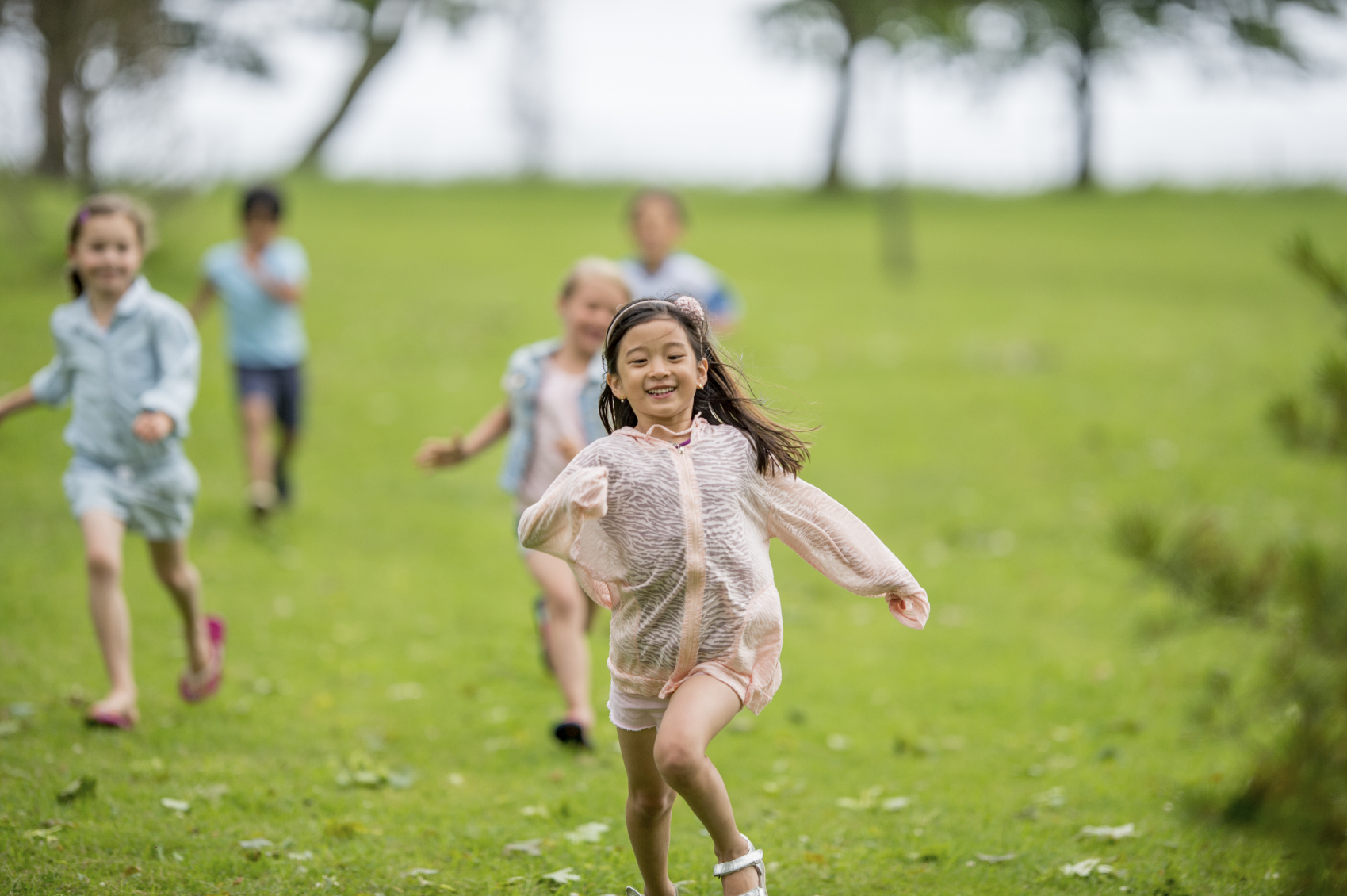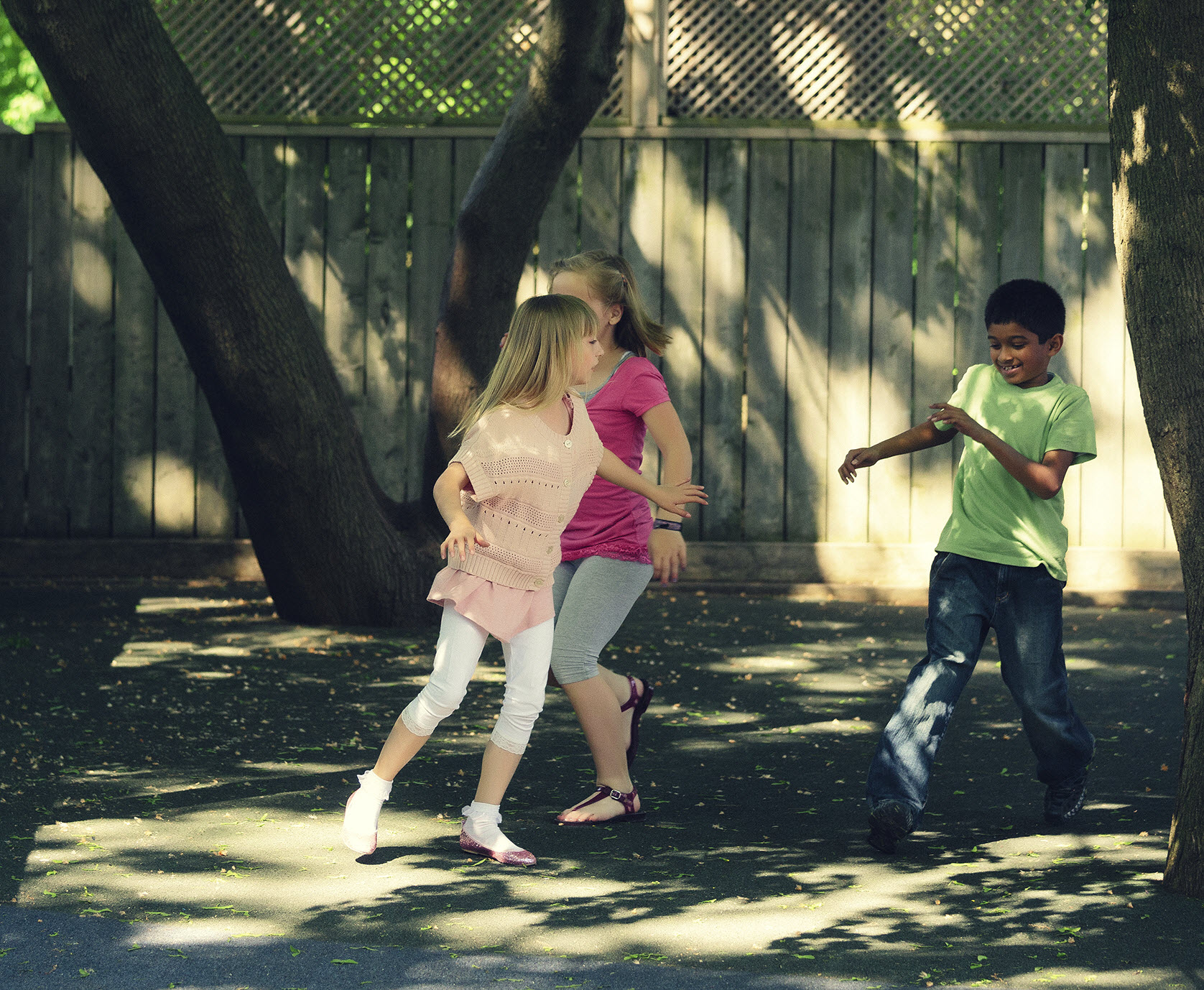
It almost sounds like directions to a science experiment: Take hundreds of parents, subtract a favorite game from their children's playground, increase the pressure by adding in national media, and watch it explode.
After a week of intense scrutiny from inside and out, the Mercer Island School District has rescinded its policy banning children from touching each other on the playground. The tug of war between parents and administrators is over. Tag is back!
I’m compelled to write about this no-touch policy because it’s been going on in my backyard, or to be precise, my playground. The one where my kids have played for 11 years and a spot they’d likely tell you was their favorite at Lakeridge Elementary School.
The "no-touch policy" was confusing to all. Running into each other, allowed or not? Chasing each other but no touching? Hmmm, not sure. High-fives and Patty Cake? No one — not kids, not parents, let alone staff — really knew.
One positive about tag on the playground is the group playing can be flexible in size, and the game is particularly conducive to boys and girls playing together. There's standard tag. Maybe sometimes kids flush each other — “toilet tag.” Sometimes they infect each other (that’s my son’s favorite, “infection tag”). Other times they freeze their friends. With no equipment, cones, or helmets, and relying on the kids' imagination and foot power, frankly, tag is refreshing.
The 'no-touch policy' was confusing to all. Running into each other, allowed or not? Chasing each other but no touching? Hmmm, not sure. High-fives and Patty Cake? No one — not kids, not parents, let alone staff — really knew.
Reams have been written on the value of unstructured play. In addition to the research, many of us parents with kids in sports feel it in our hearts, not to mention our pocketbooks: We spend hundreds of dollars on private premier sports leagues for our 9-year-olds to be kitted out like mini-pros, but quite honestly, they’re no happier than when they are running around with their friends on the street. Tom Farrey, an expert in youth sports writes, “Now it’s rare to see kids of any age playing sports in any location without the company of a coach.”
Many of us on Mercer Island heard about no-tag policy from our kids (more on that in a minute). Others learned via a private Facebook group, STAR MI (Support Tag at Recess), launched by one of my fellow elementary moms. Immediately, parents chimed in, and within days there were several hundred members; anger, disbelief and incredulity were the most commonly expressed emotions.
There was a good number of thoughtful responses, such as that from Maggie Tai Tucker, a pediatric occupational therapist and local mom: "I feel strongly that children need to learn to play physically with each other in order to develop normal play and interaction skills. If you are never allowed to touch other children, or they you, how are you supposed to learn to grade the strength of your touch, respect others' physical boundaries, or respond appropriately when someone bumps into you?" she wrote.
On our ParentMap thread, parents responded similarly. One mother wrote: "They need to get their wiggles out. School is restricting enough for little kids, let them have time to themselves." Another: "Kinda pathetic that people who are trained to work with kids can't single out bullies and quash bad behavior, but instead take away recess time and classic games for everyone.”
Tag, parents, you're it. According to the Mercer Island schools superintendent, there have been several incidents on the playgrounds where kids got hurt, leaving many parents to question whether supervision, or lack thereof might be the real problem? A recent, horrible situation at our school involved more than a dozen kids singling out one child in an area obscured by trees; children threw pinecones, possibly even stones at that child. That forested area has since been fenced off.
 But was the district's best response to flat-out ban any and all touching on the playground? Many of us felt it was blaming the game. Maybe 300 children on the playground at a given time with only 6 adults supervising is not good enough. It's too Lord of the Flies. A friend of mine who has held leadership roles on school committees has voiced concerns about playground safety for years.
But was the district's best response to flat-out ban any and all touching on the playground? Many of us felt it was blaming the game. Maybe 300 children on the playground at a given time with only 6 adults supervising is not good enough. It's too Lord of the Flies. A friend of mine who has held leadership roles on school committees has voiced concerns about playground safety for years.
But parents were not brought to the table, nor was there any dialogue about our broken recess until after the firestorm over the tag ban had broken out. The decision apparently made over the summer was implemented top-down, catching even this school's new principal as well as teachers and staff across the district off guard. In hindsight, the silence was deafening. Some told me they felt like the district had thrown them right under one of those bright yellow school buses.
In his press release announcing the rescission of the no touching policy, Superintendent Gary Plano wrote, “The 'hands-off' policy intended for unstructured play and recess, however well intended, has led to confusion, false reporting and clearly is not supported by many staff and many parents. Although the plan was focused on keeping students safe, it lacked stakeholder participation and support.”
Um, understatement. "Stakeholders," aka parents, were ready to burn someone at the stake over this. Being so caught off guard felt, weirdly, like a highlight of American childhood was about to become extinct. We became playground preservationists. Running around swatting at your friends yelling, “You’re it!” was about to disappear, like homemade cupcakes for snack at classroom birthday parties. Or just breezing into school to give our kid a forgotten paper without having to scan our driver’s license. Gone, poof.
So where do we go from here? Many schools all over the country and here in Puget Sound have in fact banned tag from recess. More recently, a national trend has emerged for “structured recess,” private supervision, and better-trained support on playgrounds at schools around the country. My colleague Kristen Russell wrote about it last year in an article, State of Play: Redefining Recess.
It’s widely known that many of the worst sorts of bullying take place on the playground, where happy chaos provides cover and playground monitors try but inevitably fail to be everywhere at once. Small aggressions... the cost of letting wound-up kids off the leash for a much-needed release. But for some, the cost is becoming too high.
“It’s widely known that many of the worst sorts of bullying take place on the playground, where happy chaos provides cover and playground monitors try but inevitably fail to be everywhere at once. Small aggressions — the little cruelties of childhood: pushing and shoving, subtle put-downs and exclusions, taking cuts and calling names — have always been part and parcel of recess, the cost of letting wound-up kids off the leash for a much-needed release. But for some, the cost is becoming too high,” Russell writes.
Superintendent Plano writes in his letter to parents that while tag has been reinstated, “Other respectful games that involve appropriate physical interaction are also encouraged.” There’s nothing inherently disrespectful about tag. And we all agree the physical interaction needs to be appropriate. But instead of a hands-off approach, the district should have reached out and gotten in touch with parents. There are likely problems on the playground that need fixing. But tag was the wrong target. I, for one, am glad it lives on.











